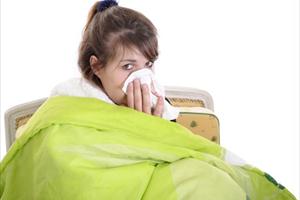What is Fungal Sinusitis?
Your chronic sinusitis unresponsive to antibiotics and other drugs? If it is, you might want to go for second opinion as you may be suffering from fungal infection of the sinuses. Fungal infection is brought about by plant-like microorganisms called fungi, which usually thrive in warm and humid climates. This particular makes the dark and damp cavities of the sinuses a great breeding ground for these microorganisms.
More About Fungal Sinusitis Anyone can suffer from fungal sinusitis, as it is often called. Nevertheless, those with weak immune system have a higher chance of being infected with this disease especially those with diabetes, Aids, and other chronic diseases. For people that have strong immune system, fungal infections are usually civilized and non-invasive. But it is often invasive and can spread with neighboring houses for those who find themselves immuno-suppressed.
There are Four Types of Fungal Sinusitis:
Hypersensitive fungal sinusitis is an allergic reaction to fungi within the environment. This usually manifests by means of symptoms such as nose blockage and release. Some patients can also develop nasal polyps.
Mycetoma or fungal ball is a condition where fungal colonies develop and occupy the tooth decay of the sinuses, more commonly in the maxillary or sphenoid. Signs and symptoms include stuffiness, nasal blockage, and discharge which can be one-sided.
How To Get Rid Of Fungus In Your Sinus
http://www.NoseSinus.com. Dr Kevin Soh describes what is fungal sinusitis, and how it can cause nose polyps. Learn how surgeons approach the maxillary ...
- Acute fulminant fungal sinusitis is actually a fast spreading infection in which the nasal tissues turn dark and necrotic.
- If not treated rapidly, it can be fatal or spread to the eyes and brains.
- Patients may experience severe headaches, fever, facial pain, nasal congestion and release.
Chronic invasive fungal sinusitis is actually similar to the previous type, but propagates a lot more slowly and doesn't always have the acute and toxic symptoms. It has all of the features of longterm sinusitis but does not respond to antibiotic treatment.
Diagnosing and Managing Fungal Sinusitis Several types of sinusitis generally express through the same symptoms - head ache, facial discomfort, nasal blockage and eliminate. But if the facial pain is so severe and it is together with dark-colored discharge, fungal sinusitis is often the diagnosis. A CT scan is recommended to properly identify the condition.
- For the actual non-invasive type of fungal sinusitis, surgical removal of the fungal ball or polyps is often recommended.
- Corticosteroids are beneficial towards sensitive fungal sinusitis.
- Are you aware that invasive type, anti-fungal medicines are necessary along with surgical removal of dead cells.
- It is also necessary to handle the immune deficiency.
Patients suffering from fungal sinusitis can also make full use of the latest kinds of treatment such as nebulized treatment and medicated sprinkler system. Here are a few helpful information relating to this forms of treatment: - Nebulized therapy entails giving medication utilizing a nebulizer. Treatment is topical, with very little chance of treatment being absorbed into the blood stream, reducing side effects. Anti-fungal nose prescription medication is usually breathed in, travelling deep to the cavities directly on the site of infection. When compared with medications, relief is more quickly with fewer side effects.
Medicated Irrigation is Another Option to Take Into Account
This treatment entails irrigation of the nasal passages with saline and also medicated solution. It moisturizes the nasal cavities in addition to washes out unwanted particles trapped inside the sinuses like bacteria and molds.







